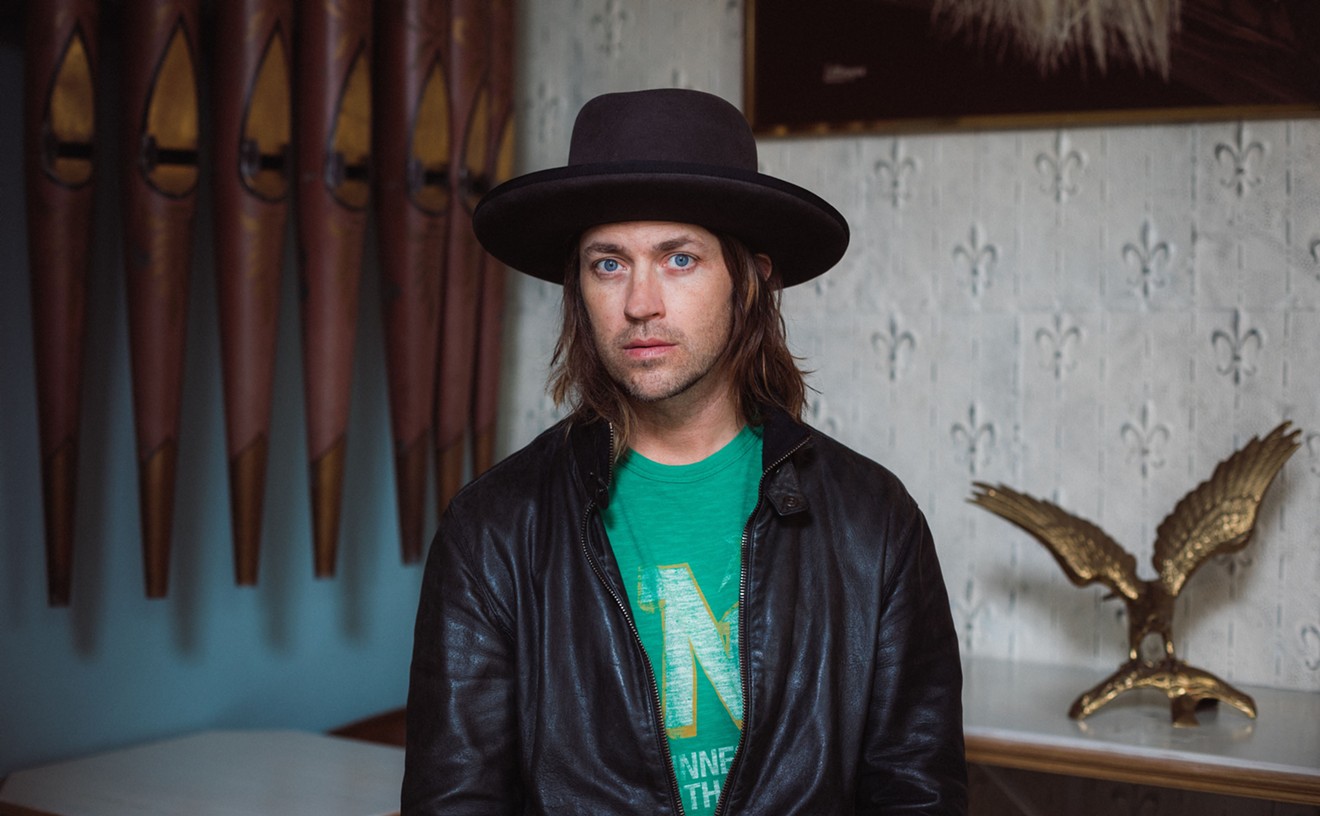Write a hit.
Major-label execs have mouthed those words so many times, it should just be tattooed on their heads when they get the job. But, like love, hit-making isn't something formulated out of thin air. It happens almost magically in the proper, propitious circumstances.
Trying to satisfy that demand was how Benjamin Grubin and Jeremy Reynolds discovered their band Hockey and, perhaps inadvertently, penned their own minor sensation—not that the label recognized it.
"I want to write a truthful song over an '80s groove," Grubin sings on "Song Away" over a dancey lick that sounds cadged from The Cars. "I'd like to let you know I'll always be straight with you/I stole my personality from an anonymous source/And I'm gonna pay for it too."
It's a catchy song—self-conscious enough to be Art Brut—written while Grubin and Reynolds struggled to pen a track to satisfy their corporate overlords. The 20-something University of Redlands graduates wanted to make music and had secured a development deal with Sony that sent them bouncing from producer to producer, trying to concoct the illusory elixir of a potential chart-topping pop song. But nothing satisfied the suits. So when Grubin sings "tomorrow's just a song away," he's referring to his all-consuming task, not a poetic ephemerality (even if that's what a hit song is).
"Part of it was the situation where we were supposed to be writing a hit song, which was really weird," Grubin says from a tour stop in Washington, D.C. "When we were recording on our own in college, it didn't sound great, but it had the feeling we wanted it to have. But, working with producers a lot of times, it just lost the feeling. It just sounded weird. We lost control of it. Except 'Song Away,' which we recorded with Jerry Harrison. That came out really perfect. Even the sterile studio-perfect sound really fit the concept."
It didn't matter in the long run, though. The duo spent nearly a year and a half in development before Sony pulled the plug. So Grubin and Reynolds then made their way to Spokane, Washington, looking for bandmates. While the friend they had in mind didn't work out, they found guitarist Brian White and drummer Anthony Stassi to fill out the lineup. They called themselves Hockey, and slowly, the group honed its identity as intelligent, overtly danceable, pop-minded new wave nostalgists.
But it took U.K. interest to put the band over the top.
During its first national tour—often playing to audiences numbering in the single digits—the band's vegetable-oil-fueled van broke down near Denver. The band members were in the midst of canceling the remaining third of the tour when they received a call from someone who wanted to represent them in Britain. Before they knew it, "Learn to Lose" and "Work" from their self-recorded/-released Mind Chaos EP got some play on BBC1 and stirred a British label feeding frenzy. After a couple cross-Atlantic tours, the band signed with Virgin Records, which was quickly followed by their penning a deal with Capitol in the United States.
Hockey's full-length debut (also called Mind Chaos) bristles with pulsing beats, jagged guitar and irresistible hooks couched in big choruses. Indeed, from "Learn to Lose" to "Too Fake" and "Song Away," the band's most distinctive and alluring aspect is the sing-song, shout-along choruses.
"In college, everyone would be singing along to the songs," Grubin says. "We don't play any of those songs anymore, but that was always our focus—playing songs with choruses that people could get, even if they'd never heard them before. We're not thinking about making hits. We just try to make songs come across very fast in that live setting. It's just always how we've approached songwriting—from the live show."
Ironically, though, the live show's been the last thing to round into shape.
"A lot of bands grow up together in the same place and have the same musical references, so it's quicker to communicate," Grubin says. "But we're a real hodgepodge, so it took a while to coalesce. But it makes sense now when we play and actually sounds like our album."
Radio hits be damned.










